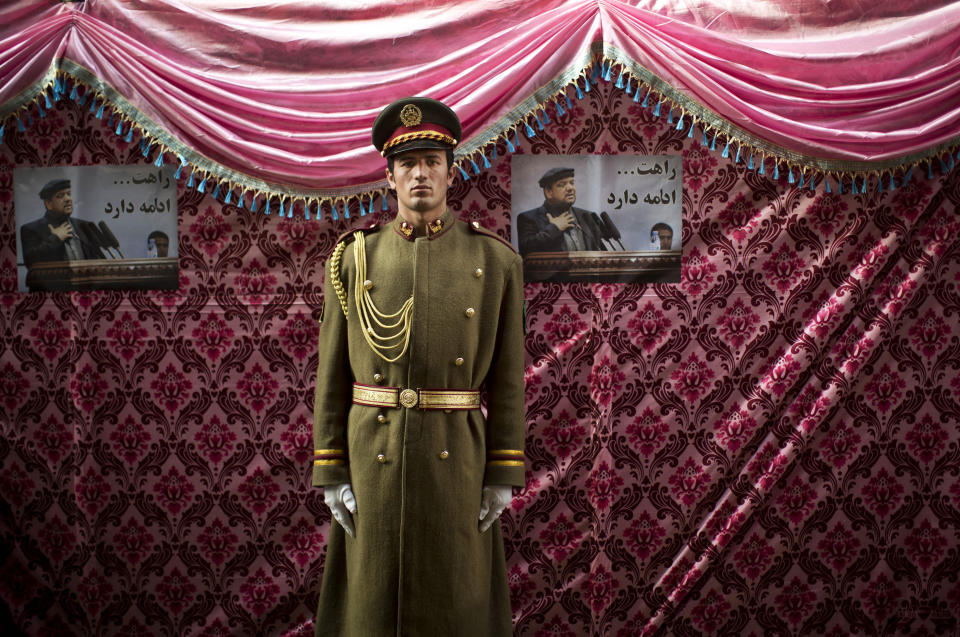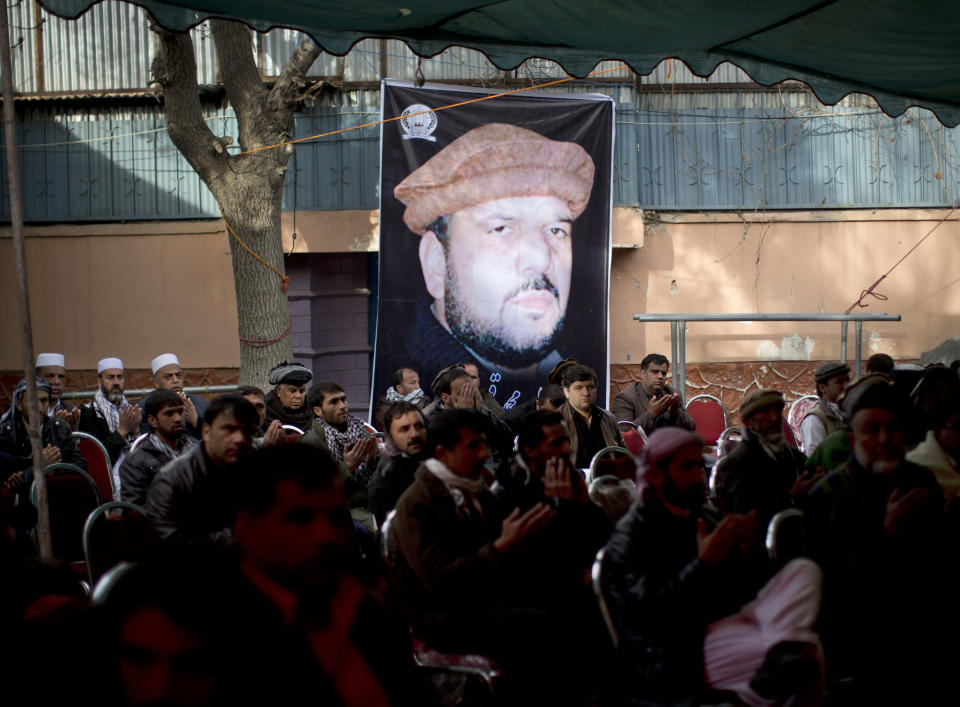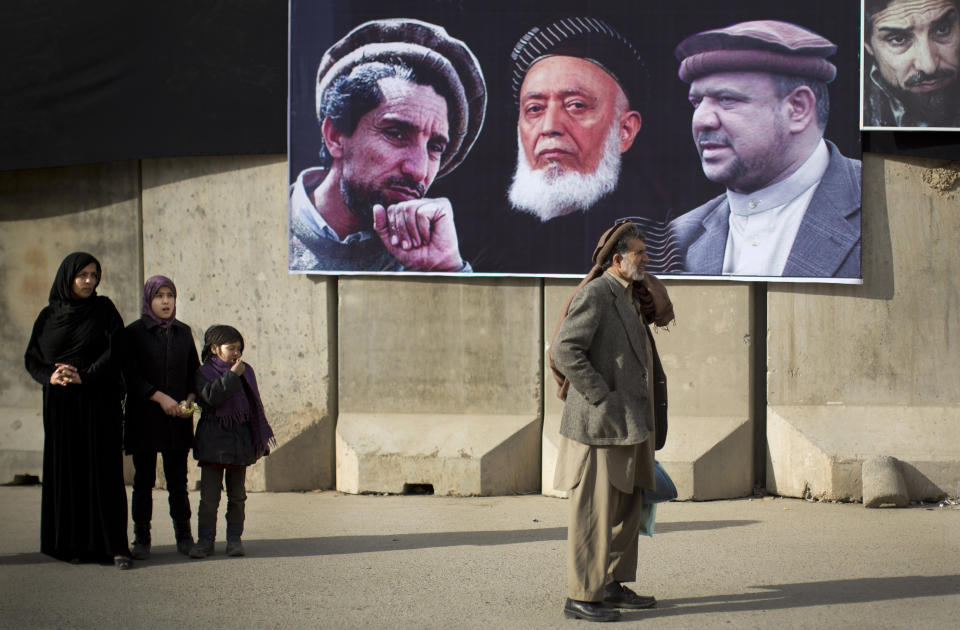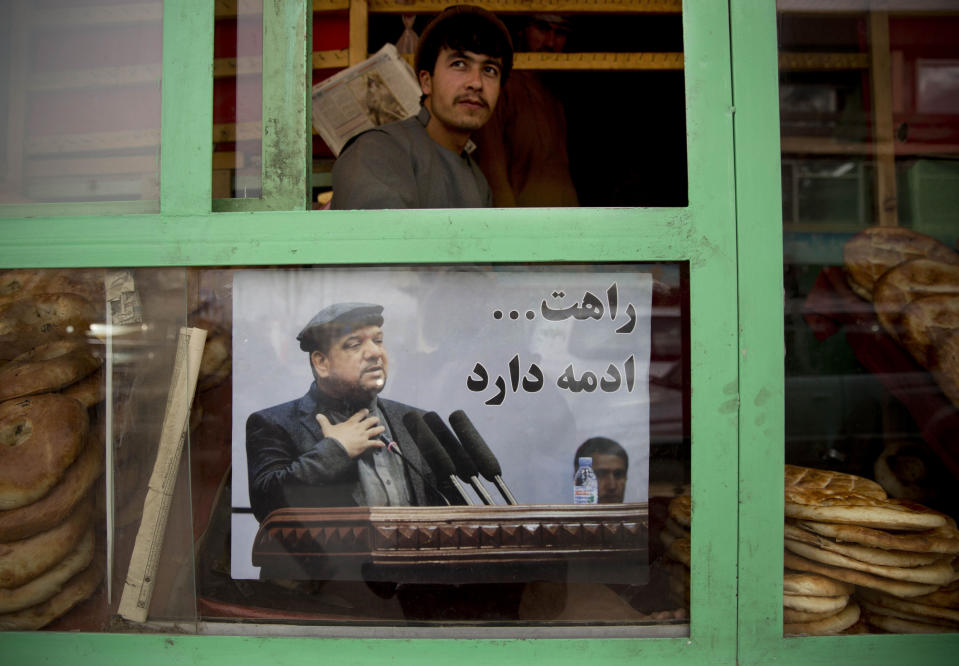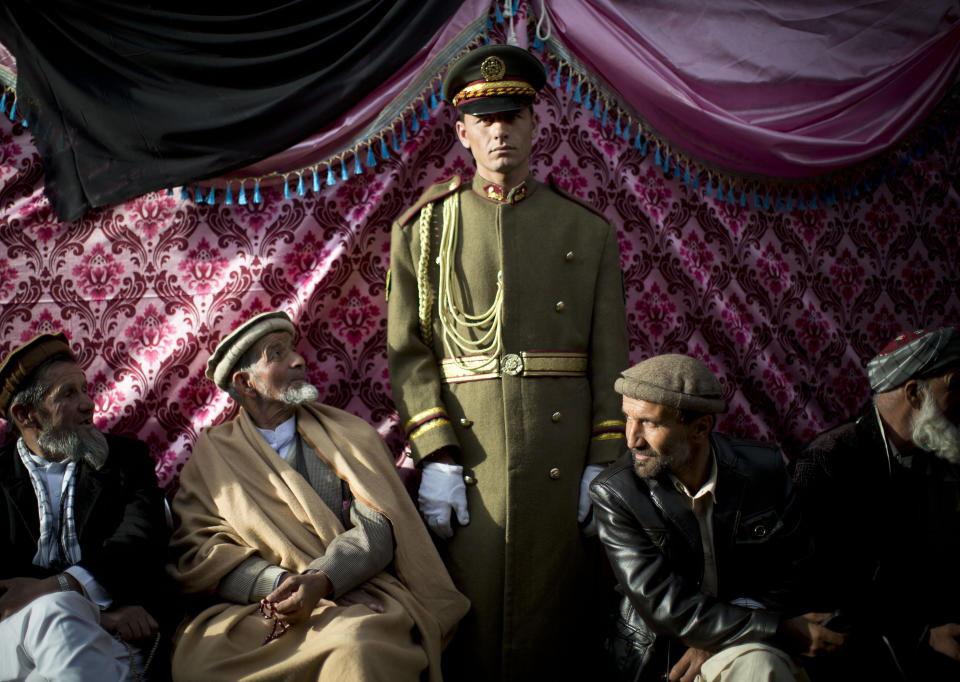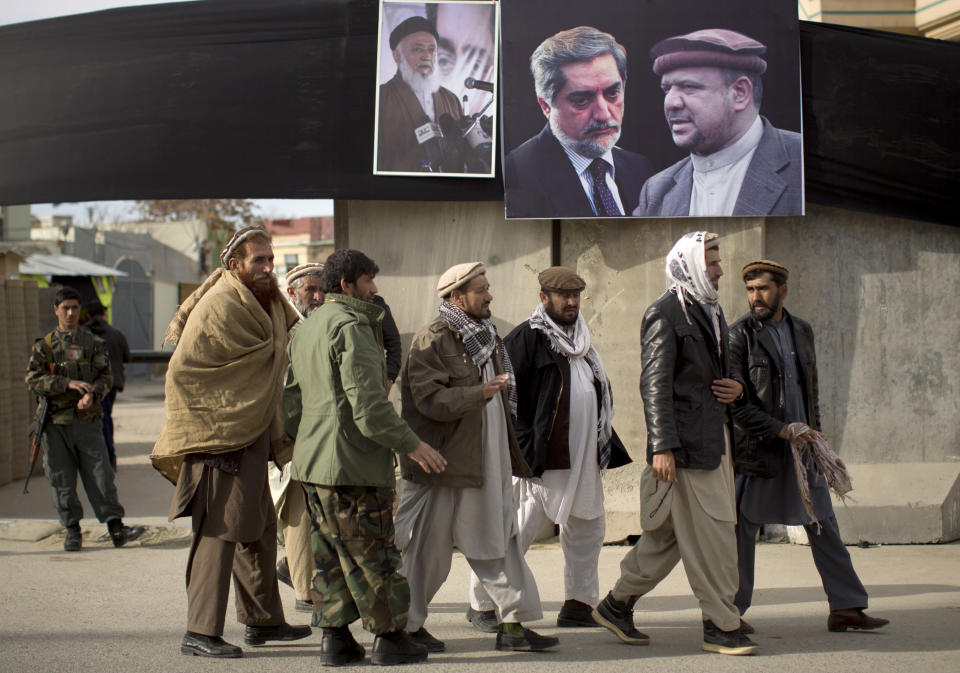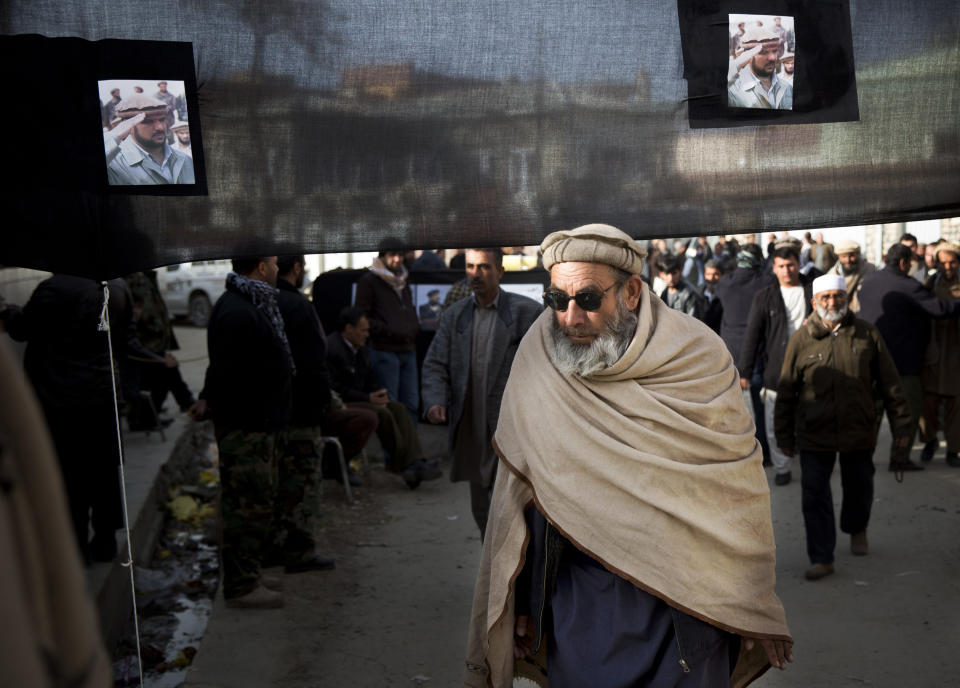Afghan Taliban warn voters to stay away from polls
KABUL, Afghanistan (AP) — The Taliban threatened voters Monday and warned they will "use all force" possible to disrupt Afghan presidential elections next month, posing a crucial test for the country's security forces seeking to show they can bring stability as the West prepares to end its combat mission by the end of the year.
The Taliban's first direct threat against the vote was one half of a double blow to hopes for a peaceful outcome from the elections. Observers said the death of the influential vice president over the weekend deprives the country of a powerbroker who could have prevented bitter recriminations among factions after the new leader is named.
The April 5 balloting will be a key benchmark in Afghanistan's efforts to forge a democracy as voters will choose a successor to President Hamid Karzai, who has governed the country since 2004, three years after the 2001 U.S.-led invasion that ousted the Taliban. Karzai is not allowed to seek a third term.
Previous elections have been fraught with allegations of widespread fraud leading to mistrust among most Afghans toward the polling and candidates.
International and Afghan officials have expressed confidence that new measures will be in place to make the voting smoother in April, but many fear complaints will be inevitable as the factions jockey for influence as the balance of power shifts for the first time after 10 years of Karzai's rule.
Sunday's death of Vice President Mohammad Qasim Fahim, a key political player who held the rank of field marshal, has raised concerns about the ability of the government to ensure a smooth transfer of power, especially if losing factions complain of fraud.
"Marshal Fahim was a good bridge between the government and rival groups," said Waqef Hakimi, an Afghan political analyst. "He would mediate and promote discussions between the sides whenever difficulties arose. He was a balancing factor."
Fahim, an ethnic Tajik who died of natural causes, was the top deputy of Ahmad Shah Massoud, the charismatic Northern Alliance commander who was killed in an al-Qaida suicide bombing two days before the Sept. 11, 2001, attacks. He was widely accused of marginalizing Pashtuns in the years after the Taliban were ousted but later reconciled with Karzai and was lauded as a champion of national unity during ceremonies on the eve of his funeral, which was scheduled for Tuesday.
"He wanted the unity of Afghanistan," Karzai said Monday in a statement. "Fahim always insisted it's the duty of the president to bring peace to this country."
The Taliban are dominated by Pashtuns, which form a majority in Afghanistan, and have waged bitter battles with ethnic minorities such as Tajiks, Hazaras and Uzbeks.
Kate Clark of the Afghanistan Analysts Network said Fahim was one of the main powers in the early years after the Taliban's ouster, and he maintained strong influence even as a number of different people became political leaders.
"He has stamped his mark on the state that has emerged ... both in terms of structures and who ended up in places where they could become powerful," she said.
Fears of violence also are high as the Taliban have waged a series of high-profile attacks in recent months in a bid to undermine confidence in the Afghan government's ability to protect the people as the Islamic militants try to position themselves to reassert power after the U.S. and its allies withdraw. Efforts to bring the fundamentalist movement into peace talks have stalled and it retains influence despite numerous U.S. and Afghan offensives against it.
U.S. officials have said the Afghan security forces already have performed well in taking the lead from foreign forces but still need training and logistical assistance. A study ordered by U.S. Congress and conducted by CNA Strategic Studies, a federally funded research group, said Afghanistan will need international trainers and advisers at least through 2018.
Karzai, however, has refused to sign a bilateral security agreement with the United States, which would allow for a residual U.S. and NATO force to stay in the country beyond the end of 2014. The main contenders in the upcoming elections have all said they will sign the deal.
On Monday, the Taliban issued a statement calling on clerics and teachers across to country to spread the word that the election is "an American conspiracy." The U.S.-led coalition in Afghanistan declined to comment on the threat.
Taliban spokesman Zabihullah Mujahid urged all countrymen "to avoid becoming victims of the enemy conspiracies in the upcoming elections process; reject it wholly and do not put yourselves in danger."
He also said the Taliban have given orders to fighters "to use all force" at their disposal to disrupt the "upcoming sham elections" by targeting election workers, activists, as well as the security apparatus and offices. He also warned the government against using mosques, schools, clinics and other public places for polling.
The Taliban have claimed responsibility for several election-related attacks already in the weeks leading up to the vote, including the assassination of a campaign worker for a presidential frontrunner Abdullah Abdullah and a failed suicide bombing targeting Ismail Khan, a vice presidential candidate on powerful warlord Abdul Rasoul Sayyaf's ticket. A member of the Independent Election Commission also was shot and killed in northern Kunduz province.
Mahmoud Saikal, a former deputy foreign minister and a supporter of Abdullah, said violence was to be expected, but the Afghan security forces were better prepared to confront it.
"I don't think they can organize large-scale operations that could cripple the election at the national level," he said, referring to the Taliban. "Yes, they may succeed in pulling some punches here and there, but those punches may not have a big impact on the overall election."
___
Associated Press writer Amir Shah contributed to this report.
